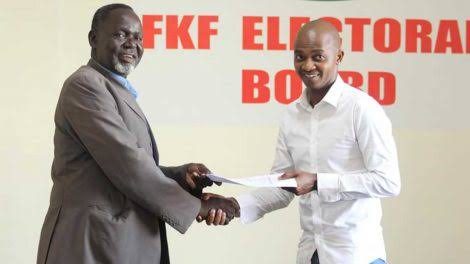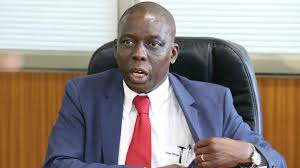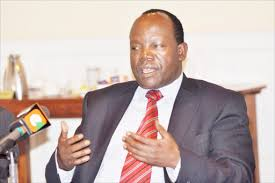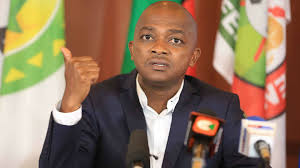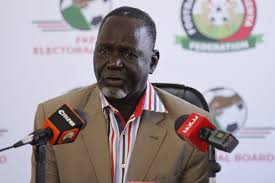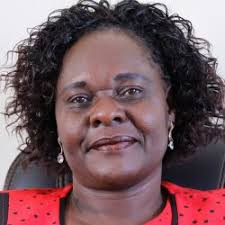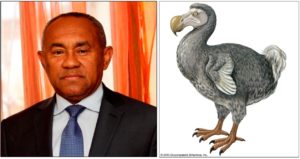Just last week, the Kenyan capital Nairobi hosted a one-day conference organized by the Chartered Institute of Arbitrators and sponsored by FIFA at the Intercontinental Hotel.
The chief guest was the CEO to the Court for Arbitration in Sports (CAS) based in Lausanne, Switzerland, Mathieu Reeb accompanied by Mario Gallavotti, Director of the Independent Committees at FIFA and one of the permanent aides to Fatma Samoura in Cairo and architects of the hostile takeover of CAF by FIFA.
The forum brought together Practicing Arbitrators, and sports personalities and Institutions promoting and championing sports to discuss and raise awareness of opportunities in Sport Arbitration.
The Lecture supposedly provided a forum for understanding disputes in sports administration and management, misconduct and how to address such cases through Alternative Dispute Resolution, what ADR Mechanisms work in the area of sport to resolve disputes, cases reference of Africa cases in arbitration and explore opportunities for practitioners in sports and current issues and trends in Sports Arbitration.
On the panel that day was John Ohaga, the President of the Kenyan equivalent of CAS and which goes by the name Sports Dispute Tribunal (SDT), which is a mechanism entrenched in Kenyan law for the resolution of Sports disputes, away from the tiresome normal court mechanism.
The SDT decisions have legal fiat though, and the SDT is itself governed by the Kenyan judiciary.
Just yesterday, the SDT passed a long-awaited ruling on the status of the Kenyan football elections, which were expected to conclude this weekend with the National and Presidential polls.
The SDT ruled to nullify any and all elections of the Kenyan FA that may have taken place and basically brought this weekends scheduled elections to a screeching halt.
This followed petitions by Former Kenya FA President Sam Nyamweya, former Kenya FA SG Lordvick Aduda, Former Eastern region boss Angeline Elijah, and aspirant and former Governor Moses Akaranga.
The ruling put paid to the short term plans by current Kenya FA President Nick Mwendwa to slide into a 2nd term unhindered, by making various amendments to the electoral code and selecting his electoral board from a list of clearly conflicted people, thus opening himself up to this arbitration process.
The 40-year old Nick Mwendwa has been a huge disappointment and unmitigated disaster for Kenyan football to say the least, compounded obviously by the hitherto misplaced belief that young people would do things in refreshing, switched-on and progressive manner, away from the shenanigans of the old cretins who had always occupied the Kenyan FA Presidency.
The attempt to tinker with the electoral process and lock out competitors from the race is just a symptom of the deep rot in Kenyan football during his 4-year tenure.
To his credit, Mwendwa has managed to hoodwink his colleagues in the CECAFA region, many of whom believe that by virtue of his being a techpreneur (and thus presumably moneyed) he is above the pettiness of looting FA funds.
Kenyans apparently also believed this horseshit when they elected current President and disaster Uhuru Kenyatta on the basis that he was listed by Forbes as being one of the wealthiest on the continent, thus did not need to dip his fingers in the national till…an assumption that they have learnt to their dismay is true only in the minds of a delusional citizenry.
Immediately Mwendwa assumed the Presidency of the Kenyan FA, he began an ill-advised and protracted supremacy battle with the Kenyan Premier League, ostensibly to enable his own club (Kariobangi Sharks) to enter the Premier league by increasing the number of teams from 16 to 18.
In that debacle and ensuing cacophony of noises, Pan-African Broadcaster Supersport found a wonderfully plausible reason to terminate their recently extended broadcast rights contract, and exit the Kenyan market prematurely much to the detriment of the KPL clubs. Today, these clubs are on their deathbeds with the stature of the league at an all-time low.
In 2017, the Kenya FA received two back-to-back payments from CAF totaling $200,000 and another tranche of $200,000 in 2019 being annual subvention.
From FIFA, Kenya FA would receive $1.2 million annually in FIFA Forward grants plus $1million annually in travel and equipment support.
It is from this FIFA amount that Mwendwa clumsily agreed with FIFA to make a payment of $1.35 million to a British company that would in turn assist the FA procure a 2nd hand OB Van from Supersport. The company, WTS Media Group Limited was a short while after receiving the money, declared insolvent.
Obviously, no one believes in bad luck and coincidence when there is such a dubious convergence of circumstances to warrant a loss of $1.35million in the snap of a finger, less so in Kenya where a certain dam project had in excess of $ 120 million paid to an insolvent Italian company by the Kenyan exchequer in a caper that has some of the top Finance mandarins arrested and charged.
The question among Kenyans is why hasn’t Mwendwa been arrested for the loss of public money?
While all this FIFA and CAF money was flowing through the Kenyan FA, the Government went out of its way to support the game, most notably with a $ 3 million dollar infusion of funds for the preparations and participation of the National team to the AFCON last June.
Today Mwendwa is at loggerheads with Kenyan Sports Ministry over calls to properly account for the taxpayer funds advanced to the FA and his belligerent rejoinders, much less the amateurish attempts at creative book-keeping.
Mwendwa has not disappointed, and true to form, with this large amount of money now in his hands, his first personal course of action was to marry a 2nd wife and purchase her an expensive flat in the Kenyan Capital, Nairobi.
The stereotype of Kenyan football aficionados getting 2nd wives whenever there is a financial windfall of looted funds therefore continues to hold true.
It was therefore quite obvious that Mwendwa would attempt to tinker with the 2019 elections, which he did by amending the electoral code earlier in the year, which sought to limit greatly those with the ability to vote right from the grassroots.
The Kenyan election begins with sub-branches (who are voted by clubs at the grassroots) who then vote for branches. The branches then form part of the Electoral College alongside Premier League and Division one clubs.
It was the Branch vote at the electoral college that Mwendwa needed to control since the Premier League and part of Division one clubs are greatly disaffected by his Presidency, occasioned by tribalism, nepotism and cronyism which has hindered the growth of the game.
The women’s premier league for instance, continues to wallow in poverty despite the FIFA providing resources to cater for their participation to the tune of $7,500 per club, money which none of them has seen to date.
The Kenyan Premier League blames Mwendwa for an attempt to scuttle the organization from within (remember that Mwendwa now sits on the KPL by virtue of his club now playing in the PL) and re-create another PL, which would be subservient to him.
Mwendwa thus has every reason to be shaky about his position as President of the FA and therefore the concerted effort to nit-pick those who would eventually cast a vote at the Electoral College.
That is how he cobbled together an Electoral board that the SDT found to be ineligible for illegally having members who are clearly conflicted.
Prof. Edwin Wamukoya (Chairman) and Ms Elynah Sifuna-Shiveka were found to be conflicted as members of the electoral board considering that the former had served in the same board during the 2016 election and the latter was still a sitting member of the same SDT that would seek to resolve any petitions that would arise from the outcome of the elections.
“We find that the process of elections has been marred and the resultant results of this process are therefore null and void,” ruled the SDT yesterday
“The applicants submitted that they sought the orders on grounds that the Electoral Code was adopted without the required stakeholder engagement, the choice of the members of the electoral Board lacked transparency and was done without the required stakeholder engagement,” continued the ruling.
“Some members of the Board are ineligible for membership by reason of conflict of interest and mandatory prohibitions under the FIFA Electoral Code and the electoral code has provisions violating the FIFA Standard electoral code.”
Wouldn’t this have been common sense to the leadership of the Kenya FA?
So now, elections have been placed in abeyance for an indefinite period pending the action of the same lethargic Kenya FA to complete the ordered public participation for the electoral code and a makeover of the electoral board.
Within CECAFA and the Kenya FA, a certain narrative is currently being bandied around generously that FIFA President Gianni Infantino loves Nick Mwendwa, for his laid back and easy-going demeanor (which is code for being a total wet blanket and possum) and that FIFA would use its ethics committee to impede some of the other candidates either from the ballot or from assumption of office should they manage to flip the election.
Infantino has shown that he is clearly not a friend of Africa, and anyone touted as a favorite of his should be viewed with suspicion.
You cannot claim to be the friend to an alcoholic while plying him with more liquor or facilitating access to it, which is the deeply worrying and unhealthy relationship FIFA currently has with Africa.
Mwendwa thus joins the other lackadaisical cartoon characters of African football – Ahmad, Omari, Lekjaa, Yahya, Nyamilandu – all of whom are touted to be great friends and favorites of the snake-oil salesman Infantino, and who will happily sell off African football heritage.
Kenyan Football Elections Stopped Dead In Their Tracks pic.twitter.com/a4R83YbmP2
— FIFA Colonialism Website (@FIFAColonialism) December 5, 2019

